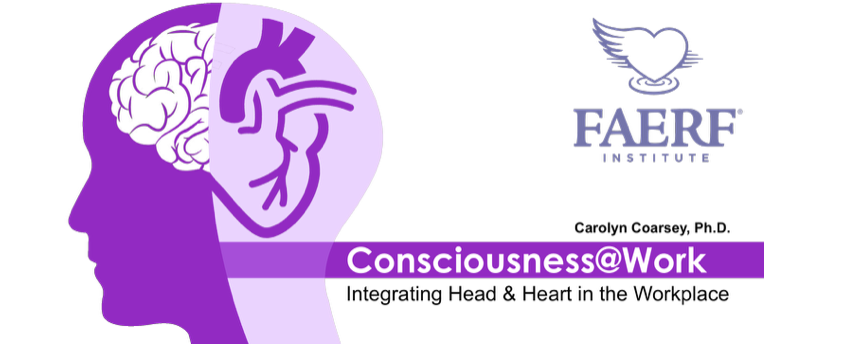
The Family Assistance Education & Research Foundation (FAERF) has been at the forefront of the evolution of emergency management, combining the head-heart approach for a fully integrated response to survivors of traumatic loss. Practicing consciousness in the workplace involves caring for people first, without exception.
Planning and Preparation Prevents Problems for Victims of Mass Violence
Written by: Carolyn V. Coarsey, Ph.D.
The Family Assistance Education & Research Foundation’s (FAERF) models for supporting survivors of traumatic loss in the workplace are based on a concept from the field of community psychology, “primary prevention.” This term refers to remaining conscious or aware of any crisis that might occur in the workplace, and preparing in advance for the tragic event. Planning and preparation in advance of a potential crisis results in fewer preventable mistakes. Results of a recent study conducted by the National Crime Victims Research and Treatment Center(NCVC) show the value of primary prevention at the base of their pyramid for assisting survivors of violent crime.
Attendees at FAERF’s 2023 Member Partner Meeting were privileged to hear a presentation from Angela Moreland, Ph.D., an Associate Professor at the NCVC at the Medical University of South Carolina (MUSC). The following information is a summary of the highlights of the presentation.
A mass violent incident (MVI) is defined as an intentional violent criminal act, for which a formal investigation has been opened by the FBI or other law enforcement agency, that results in physical, emotional, or psychological injury to a sufficiently large number of people as to significantly increase the burden of victim assistance and compensation for the responding jurisdiction. Dr. Angie presented the overall findings of their research on victims of mass violence:
- Most victims do not develop mental disorders, but many do
- Many victims recover on their own; others need assistance
- Social support is protective
- Most victims do not seek mental health treatment
Next, she shared the results of a survey involving three communities where mass shootings occurred.
MVI COMMUNITIES: El Paso, Texas; Parkland, Florida; Pittsburgh, Pennsylvania.
SAMPLING STRATEGY: Area probability household sample of adults (age 18 or older) from each community identified using address-based sampling. Invitations mailed and randomly selected adults from each household selected for participation using the most recent birthday method. Total sample size = 2078.
SURVEY DATA COLLECTION: English or Spanish versions of surveys self-administered online or via paper version.
Take home points of the study:
- Clear evidence of mental health ripple effects – percent with PTSD and depression higher than in nation as a whole.
- Most adults in MVI communities were resilient and did not have PTSD or depression, but many do have problems and need some services.
- Prior physical or sexual assault victimization is a huge risk factor for PTSD and depression after MVIs. An MVI may exacerbate preexisting crime-related mental health problems.
- Good social support is a critical factor for reducing the impact of MVIs.
- Findings across the 3 MVI communities were similar, but there were many meaningful differences. One size may not fit all!
Helpful Resources from the NMVVRC
A Free Transcend NMVC app to assist with recovery from the psychological and behavioral response that can occur following direct or indirect exposure to mass violence incidents is available.
Although the app was developed specifically for mass violence victims, people exposed to other types of stressful events are also likely to find the strategies and techniques in the app to be useful in their recovery, as well.
- Over 20 podcasts from various experts in the field.
- Range of topics including:
-
- Civil vs. Criminal Trials and a Brief History of Victims Rights
- Rights, Access, Equity, Resilience for all victims: 160 years of experience assisting crime victims and survivors
- Incorporating cultural awareness and mental health care for mass violence survivors
- Balancing victims’ rights and defendants’ rights during mass violence court cases
- Hate crimes and mass violence
- Mass Violence effects on children and teens
- List of resources
- Resources posted on social media and distributed to key stakeholders and partners
To obtain a copy of the slides that Dr. Angie presented, please contact Kristine Budaha (kristine.budaha@aviem.com)
